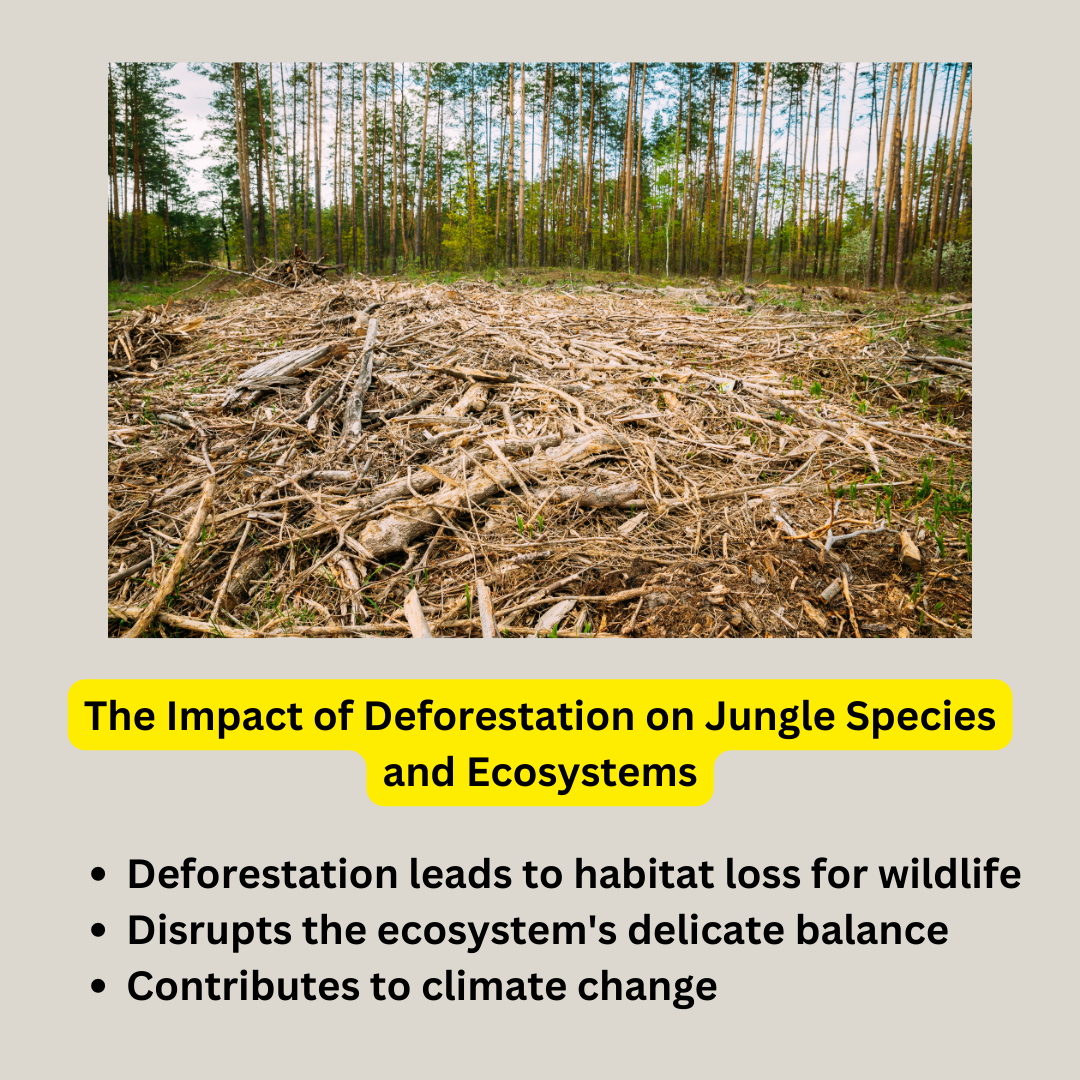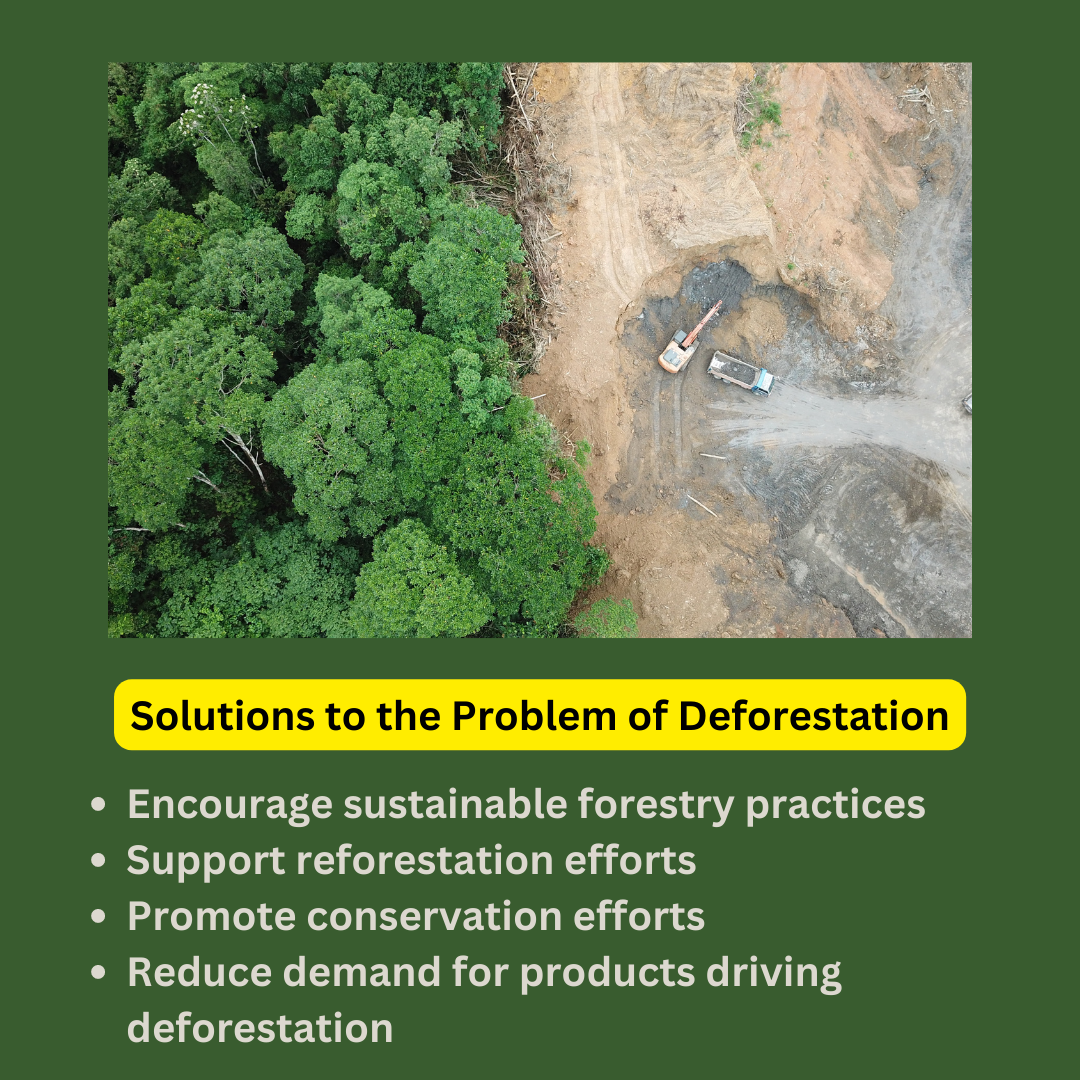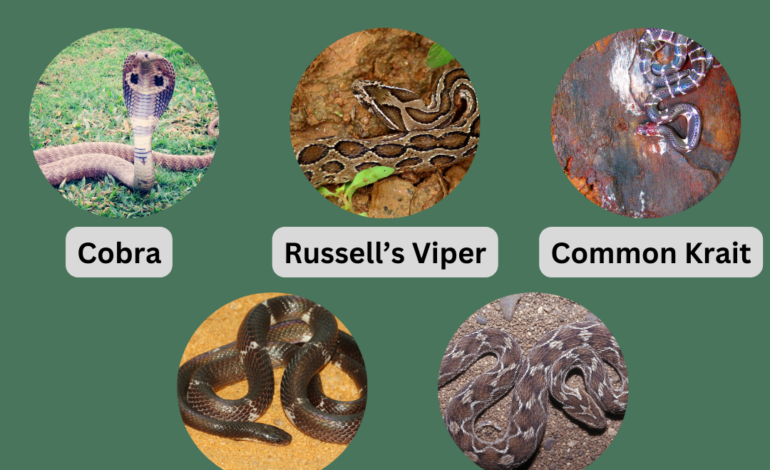Deforestation is a major environmental issue that poses a threat to jungle species and ecosystems.
The removal of trees and other vegetation from a forested area can have a profound impact on the biodiversity and ecological balance of the area.
In this blog, we will explore the impact of deforestation on jungle species and ecosystems, provide real-life examples, and examine potential solutions to this problem.
The Impact of Deforestation on Jungle Species and Ecosystems
Deforestation has a wide range of negative impacts on jungle species and ecosystems. Firstly, deforestation leads to habitat loss, which has a direct impact on the wildlife that live in the area. Many jungle species are dependent on the forest for their survival, and the removal of trees can leave them with no place to go. This can result in the decline and even extinction of many species, including birds, mammals, reptiles, and insects.
Secondly, deforestation disrupts the delicate balance of the ecosystem. Trees play an essential role in the water cycle by absorbing water from the soil and releasing it back into the atmosphere through a process called transpiration. Deforestation can lead to a reduction in the amount of water that is absorbed by the soil, leading to soil erosion and decreased water quality. This can have a negative impact on the plants and animals that live in the area, as well as the people who depend on the ecosystem for their livelihoods.
Thirdly, deforestation contributes to climate change. Trees absorb carbon dioxide from the atmosphere and store it in their biomass, helping to reduce greenhouse gas emissions. When trees are cut down, this stored carbon is released back into the atmosphere, contributing to global warming. Deforestation also reduces the capacity of the ecosystem to absorb carbon dioxide, further exacerbating the problem.
Real-Life Examples of Deforestation in Jungle Ecosystems
The impact of deforestation on jungle species and ecosystems can be seen in many areas around the world. One such example is the Amazon rainforest, which has been subject to deforestation for many years. In 2020 alone, an area the size of Jamaica was cleared, representing a 9.5% increase from the previous year. This deforestation has had a profound impact on the wildlife that lives in the area, including jaguars, monkeys, and birds. It has also contributed to climate change by releasing large amounts of carbon dioxide into the atmosphere.
Another example is the deforestation of Borneo’s rainforest, which has led to the decline of many species, including orangutans, elephants, and rhinoceros. In 2021, it was reported that more than 90% of the forest in the Malaysian state of Sabah had been lost or degraded, with only a small percentage remaining in pristine condition.
Solutions to the Problem of Deforestation
There are several solutions to the problem of deforestation, including the following:
- Encourage sustainable forestry practices: Forest management practices that prioritize sustainable use can help reduce the impact of deforestation on jungle species and ecosystems.
- Support reforestation efforts: Reforestation efforts can help to restore lost habitats and mitigate the negative impact of deforestation.
- Promote conservation efforts: Conservation efforts can help protect jungle species and ecosystems from the impact of deforestation.
- Reduce demand for products that contribute to deforestation: The demand for products such as palm oil, soy, and beef are major drivers of deforestation. Reducing demand for these products can help reduce the pressure on jungle ecosystems.
Conclusion
Deforestation is a major environmental issue that poses a threat to jungle species and ecosystems.
The removal of trees can lead to habitat loss, disrupt the balance of the ecosystem, and contribute to climate change. Real-life examples from the Amazon rainforest and Borneo’s rainforest highlight the severity of this issue.
Better solutions, such as sustainable forestry practices, reforestation efforts, conservation, and reducing demand for products that contribute to deforestation, can help mitigate the impact of deforestation on jungle species and ecosystems. It is important for individuals, governments, and corporations to take action to protect these precious ecosystems and the wildlife that call them home.
By working together, we can ensure a sustainable future for our planet and its inhabitants.




